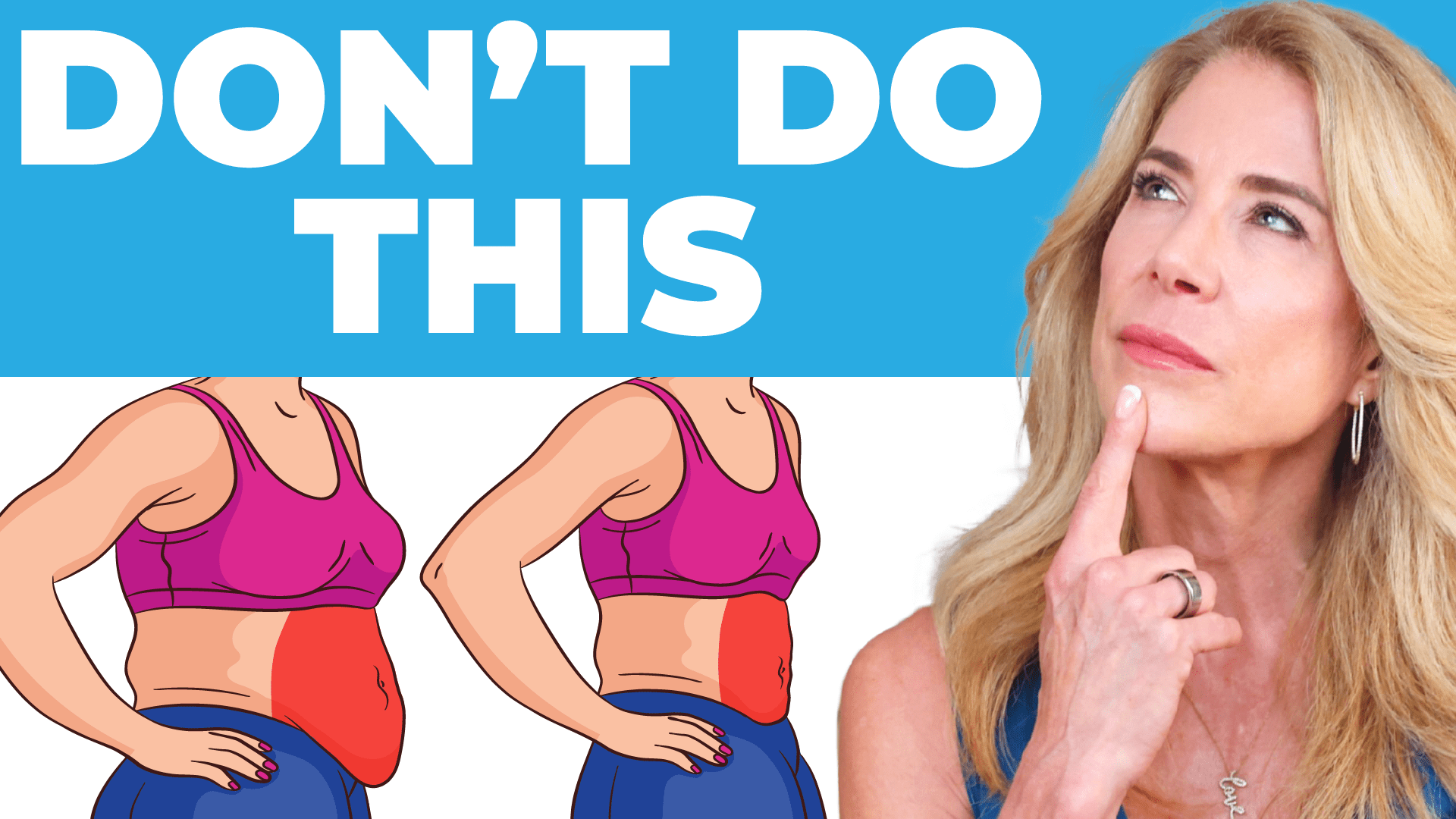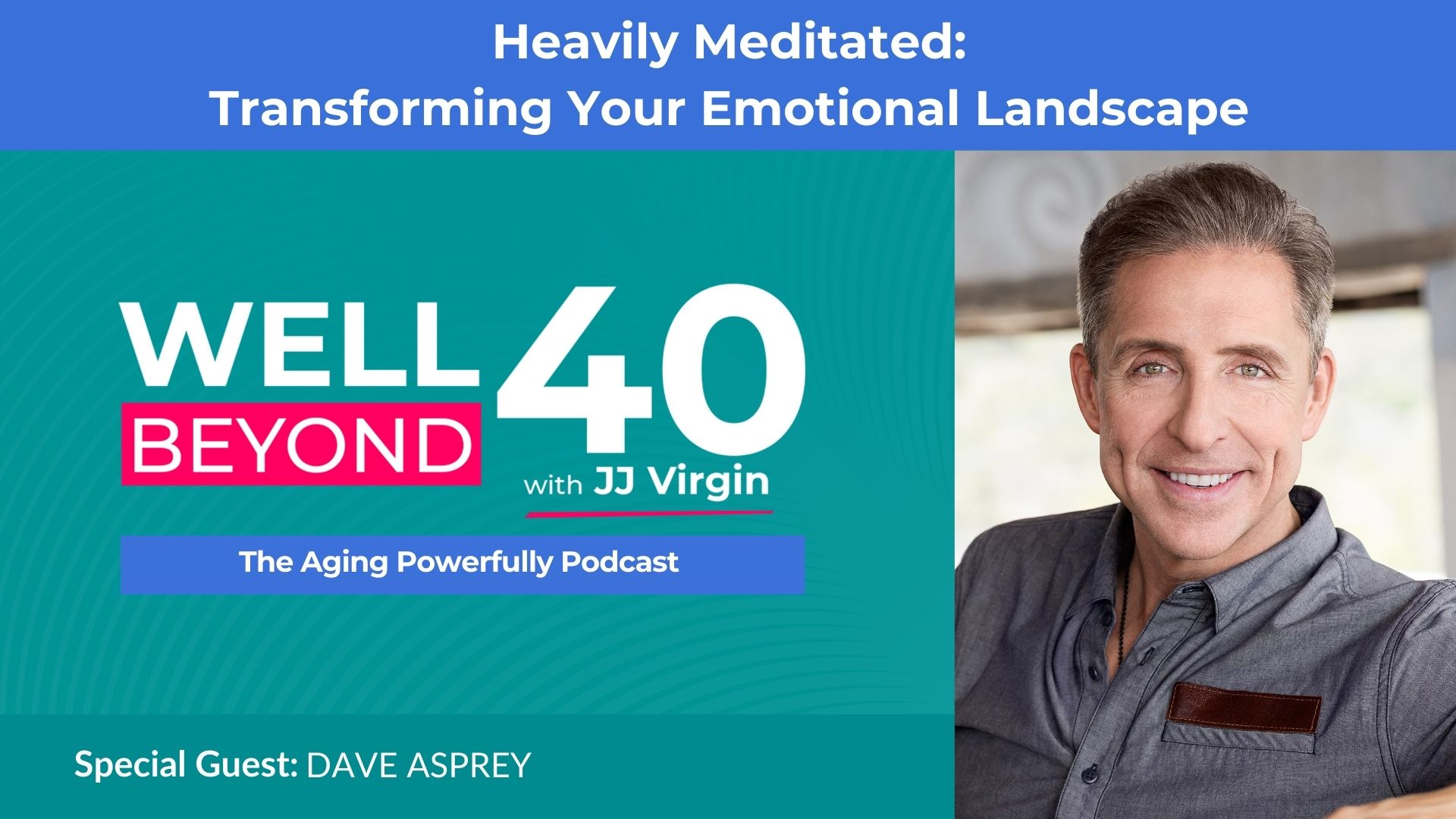Cracking the Code of Successful Intermittent Fasting
In today’s episode, we explore common mistakes that can hinder your intermittent fasting success. Tune in to hear the common pitfalls I see all the time that can sabotage your fat loss and make you gain weight instead. Learn about simple but crucial changes to boost your metabolism and address insulin sensitivity issues. We’ll discuss research on meal timing and its impact on your body’s natural rhythms, and I’ll share insights on optimizing eating schedules for better health outcomes.
One major pitfall we’ll address is how you approach your feeding windows. We’ll delve into the importance of balanced eating and avoiding extreme behaviors that can sabotage your efforts. Discover strategies for maximizing the benefits of intermittent fasting, including its effects on cellular processes and hormone regulation. I’ll also reveal my personal approach to managing hunger and maintaining muscle mass during fasting periods.
Another crucial aspect we cover is the role of nutrition and hydration in your fasting routine. Learn why the quality of your food choices matters and how proper hydration can impact your results. I’ll offer practical tips for staying on track and explain why consistency in your fasting schedule is essential for long-term success. Finally, we’ll discuss the importance of micronutrients and how to ensure you meet your body’s needs.
Join me as we uncover these essential insights and actionable tips to make your intermittent fasting journey successful and sustainable!
Timestamps
00:01:02- Common Mistakes in Intermittent Fasting
00:01:21- Syncing with Your Circadian Rhythm
00:03:50- Avoid Overeating During Feeding Windows
00:06:23- Importance of Protein Intake
00:08:13- Choosing High-Quality Foods
00:10:33- Consistency in Fasting Windows
00:11:59- Staying Hydrated
00:13:51- Ensuring Micronutrient Intake
Resources Mentioned in this episode
7-Day Eat Protein First Challenge
Reignite Wellness™ Magnesium Body Calm
Download my free Resistance Training Cheat Sheet
Study: Health Benefits of Fasting and Caloric Restriction
Study: Brain–Gut–Microbiome Interactions and Intermittent Fasting in Obesity
Study: 10-Hour Eating Window Boosts Mood and Energy
Episode Sponsors:
Try Timeline. Use code JJ10 for 10% off all products
Try Qualia risk-free for up to 100 days and code VIRGINWELLNESS for an additional 15% off
You’re doing intermittent fasting all wrong if you’re making these mistakes. Now I’m going to share the common pitfalls I see all the time that can sabotage your fat loss and actually make you gain weight instead. So let’s avoid doing this and making all of your hard work go to waste. Deal? So the first one is not syncing your circadian rhythm.
Ignoring your body’s natural clock can mess with your metabolism. That means eating too late in the day or at odd hours. It can disrupt your insulin sensitivity and, that means, increase fat storage. There’s a 2021 review in Nutrients Journal’s special issue on diet, 2 diabetes and hypertension that emphasize that our internal clock regulates vital hormonal activities that control metabolism, influencing how we process food, sleep and manage body weight.
Mealtimes, night shifts, and late night eating disrupt these natural rhythms. This mismatch between our biological and social clocks can impair insulin efficiency and hinder fat loss. Practices like time restricted eating, which align mealtimes with daylight hours, Can help synchronize eating schedules with circadian rhythms, enhancing metabolic health.
Optimal mealtimes are recommended in the morning and early afternoon to maximize the efficiency of metabolic processes and prevent metabolic disorders. And I want to do a big shout out here to Dr. Sachin Panda and their circadian code where he talks about this and really focusing on getting our calories in During the day, during the sunlight and when we’re active.
So here’s how I take this information and put it into use. I match my eating to my circadian clock. So in the morning I eat about two hours after I wake up. The reason I wait about two hours is I want to give time for my pancreas to get online. So it’s ready to secrete insulin. When I eat, I also stop eating three hours before bed.
Now, I’d love it to be four hours. My hard rule is at least two, but ideally it’s somewhere two to four hours before bed. A little longer is better. Think about that. If you are sleeping eight hours or so, you’re in bed eight hours or so, and you just stopped eating three hours before bed, and you ate about two hours earlier in the morning, you already have somewhere in the 10 to 12 hour schedule.
Eating window right there. And my line there is to make sure you have minimally a 12 hour fasting window. But somewhere in the 9 to 12 hours is probably just about right. Now if you want to shorten your window a little bit, see how it works for you. See how it works for your schedule. And your hunger, because that brings me to point number two, if you get too hungry, and that’s overeating during feeding windows.
I know they talk about fast and feast, but don’t take the feast too literally, right? It’s tempting to compensate for the fasting period by like going a little crazy and eating much more during your allowed eating times. Just because you’ve compressed your eating window, isn’t it? Just giving you a free for all during that time because it’s easy to consume more calories than you burn.
And guess what happens if you eat more than you can burn? You’re going to wear it. There was a comprehensive review in 2017 issue of Current Diabetes Reports that illustrated how caloric restriction can play a critical role in enhancing the benefits of intermittent fasting, particularly when you’re doing this for weight loss.
And there’s a couple other cool things about caloric restriction here. When you limit calories, you trigger a lot of the beneficial mechanisms that, by the way, are also what we trigger with intermittent fasting, like activating cellular stress responses, improving cell cleanup processes, you know, autophagy, uh, adjusting cell death, that apoptosis, and also rebalancing hormones.
While intermittent fasting is generally more manageable, it’s easier to do. It’s a little bit easier to restrict calories if you just say, Hey, I’m not eating at night. Like if we just cut out that after dinner, most people would save hundreds of calories. And what’s also cool here is generally intermittent fasting is going to reduce the risk of some of the malnutrition that you can see with, uh, with big continuous caloric restriction.
However, you really got to make sure that you don’t get into the binge Eating after fasting. That’s the big important thing here to make sure that you’re maintaining these long term health improvements that you’d get from this. So how do I do this? I know me and if I get too hungry, it’s really bad news for me.
I will overeat. So I refer to point number one and I make sure that I’m working with my optimal circadian rhythm. For me, and I’m an N of one, we’re all different, right? I find that I’m hungrier Like I do really well eating about two hours after I wake up in the morning. If I was going to skip a meal, generally it would be dinner.
That’s when I’m not as hungry later in the day. And in fact, sometimes we’ll end up, you know, going out later with friends and I’m kind of like, I’m, I’m done. Like I’m not even hungry at this point. Figure out what works best for you because here’s the deal, even if you’re eating healthy, if you’re overeating too much healthy food is not healthy.
Now one thing I’m not really worried about you overeating on, I’m more worried about you not getting enough of is protein. Because when you combine protein, not getting enough, with caloric restriction you have a recipe for cancer. Muscle loss. In fact, what do we know? 25 to 40 percent muscle loss happens from most poorly designed diets.
So you hear a lot about muscle loss with things like semaglutide. It’s actually not the drug. It’s the diet. So there was a study done in 2006. It was a non randomized controlled trial. It was an animal study. It was published in the FSC. FASEB journal and it found that caloric restriction without sufficient protein diminishes muscle strength and mass and contributes to overall reduced muscle function.
And again, that is significant for any type of diet. So any diet that doesn’t have enough protein and you’re not eating, you’re not doing resistance training will cause muscle loss. We want to avoid that at all costs. So what’s my strategy to make sure that this doesn’t happen to you? Eat protein first and we’re going to weigh and track your protein because that way we know you’re getting what you need.
And the other thing I love here, here’s my hack for this, is to also take some essential amino acids with it. Every morning I take essential amino acids alongside my breakfast. I’m also starting to do them as dinner as well, just so I make sure that my muscles have what they need to rebuild. Now I have a seven day eat protein first challenge that makes it super easy for you to start increasing your protein intake.
What’s cool is it comes with a little calculator so you can figure out how much protein you need. Plus it’s got great recipes and all of my best tips and you can get that at jjvirgin. com forward slash seven day and that’s the number seven. Now, along with not getting enough protein, the other big challenge is choosing low quality foods.
We talked about breaking your fast and eating too much. We also want to watch what you’re eating, because we’ve got to make sure that you’re getting that nutrient density. So if you break your fast with foods that are like high in sugar or bad fats, you know, the crappy ultra processed foods, guess what?
That’s going to spike your insulin and your blood sugar. It can lower your metabolic rate. We know that about ultra processed foods. They actually can lower your metabolic rate. So what do we need? Okay. We need to make sure that what you’re eating counts, that every calorie counts, that you’re getting nutrient dense foods that support your goals.
Things like, of course, that clean protein, loads of non starchy vegetables, little bit of fruit. There was a study in 2021. It was a review in the Nutrients Journal that underscores that breaking a fast with high quality nutrient rich foods can positively affect metabolism and insulin resistance, which supports the idea that the Intersection between diet quality and the timing of food intake is critical.
And that what you eat after fasting can significantly impact your health outcomes. Circadian Rhythmicity affects both eating behavior and multiple gut functions as well as the composition and interactions of the microbiome with the gut. I remember years ago when the Sugar Impact Diet was coming out, I was on the Today Show.
And I was on the Today Show with the author of the 16 8 book, David Shinchenko. He also wrote the book Eat This, Not That. Remember that book? And what was so funny during this interview is we were going back and forth. Still don’t know why they put us together. It was kind of, uh, didn’t, didn’t really flow well.
But he was saying, you know, you can actually eat the not that, but just eat it during this window. And I’m like, Come on, that doesn’t make sense. It’s important to note that just because you’re eating during a smaller window doesn’t mean it’s a free for all that you can eat whatever you want. You want to ensure that you’re eating protein first, then adding in your non starchy veggies and some healthy fat, then some slow carbs, things with high fiber or fruit as close to nature as possible.
The way that we have been eating all along, the eat by the plate way. Now, one other thing, and I remember hearing about this from Dr. Satchin Panda, is, is kind of, Making your, your eating mealtimes all over the place because your body gets used to things. And you know that if you’re used to eating breakfast at eight and all of a sudden it’s nine, you haven’t eaten, you’re hungry.
So inconsistent fasting windows can be a problem. Switching up your fasting times too often can confuse your body and may lead to some hormonal imbalances, which of course then makes it even harder to lose weight. So you got to be consistent. And, remember, you’re an N of 1, so you’re being consistent, you’re listening to your body to see what timing works best for you.
There was a 2023 study on intermittent fasting by King’s Cross College. This is the largest UK community science study of its kind, and it revealed significant health benefits associated with it. 10 hour eating window, which I love because I think that’s so doable for all of us. And it showed that those who are consistent with their eating window, eating at the same time, had better benefits than those who were shifting their eating window day to day.
Now, again, I first heard about this with Dr. Satchin Panda about how important it is to keep your eating times consistent because your body is going to adapt to this and it’ll start to prepare for incoming food. So just like you want to keep your bedtime and wake time consistent, get your food intake into a consistent schedule as well.
Oh, and your exercise too. Alright, next up, neglecting hydration. So fasting can make it easy to forget about staying hydrated. And dehydration, as you know, can slow down metabolism and increase hunger signals, which could just cause you to eat more. There was a 2022 observational study that was published in Frontiers in Nutrition that found that people often don’t drink enough water and beverages during fasting, which can lead to dehydration.
Researchers discovered that the most common drinking pattern during Ramadan is 242. By the way, that’s Two glasses at sunset, four glasses at night time, two glasses pre dawn. But, a pattern of 4 2 2, which would be four glasses at sunset, two at night time, two pre dawn, is more effective in helping people meet their daily water intake recommendations.
So What do we do with this information? And this is a biggie because even mild dehydration we know can can slow down weight loss, raise cortisol, but more importantly can actually take glycogen out of the liver, convert it to fructose, and make you store it as fat. So let’s avoid this. Here’s what I do. I make sure that I carry around, I literally carry around a 64 ounce bottle of water a day.
That is my minimum. You want to have half your weight, half your body weight in pounds, right? So if you weigh 140 pounds, that would be 70 ounces of water. So if it’s kgs, it’s just the same. So if you’re 65 kgs, 65 ounces of water, so half your body weight in ounces plus one half to one ounce per minute of exercise.
And what I like to do in there too is I add in my electro replenish. So I’m adding in my electrolytes as well to at least one serving a day. If I’m sweating a lot, I do it to two servings a day. And I’d rather err on a little bit more Water, then a little bit less. And then finally, let’s talk about skipping micronutrients because one of the things we want to make sure is that everything is counting.
That you’re eating very nutrient dense, but likely when you’re eating less frequently, your body not getting everything that it needs. And your body still needs all of the stuff. It needs the vitamins and the minerals, essential fatty acids, right? The essential amino acids. So you got to make sure that you’re getting this because neglecting this, of course, is going to impact your body’s.
Overall health and can impact your body’s ability to lose weight too. There was a 2020 randomized controlled trial published in clinical nutrition that looked at macronutrient and micronutrient intake following the 5 2 intermittent fasting diet. And what that study found was that several micronutrients, including calcium and zinc and magnesium and potassium.
We’re lower than what was recommended during the guidelines for those fasting days. And despite the fact that they could eat what they wanted on the non fasting days, they couldn’t make up those deficiencies. So intermittent fasting could lead to insufficiencies in your micronutrients. So what’s my tip on that?
I think that we all need to be taking a good multivitamin, mineral, antioxidant formula. This to me is your health assurance policy. Super duper important. All right. Now, earlier I talked about how important protein is, especially when it comes to keeping you satisfied and keeping cravings away. So in this next video, I’m sharing three high protein meals that are my go tos for getting my protein every day.
They’re super easy. And, help keep your energy up all day so you aren’t sidelined by cravings in between meals and during your fasting window.
Hide Transcript

 Subscribe to our show
Subscribe to our show 




